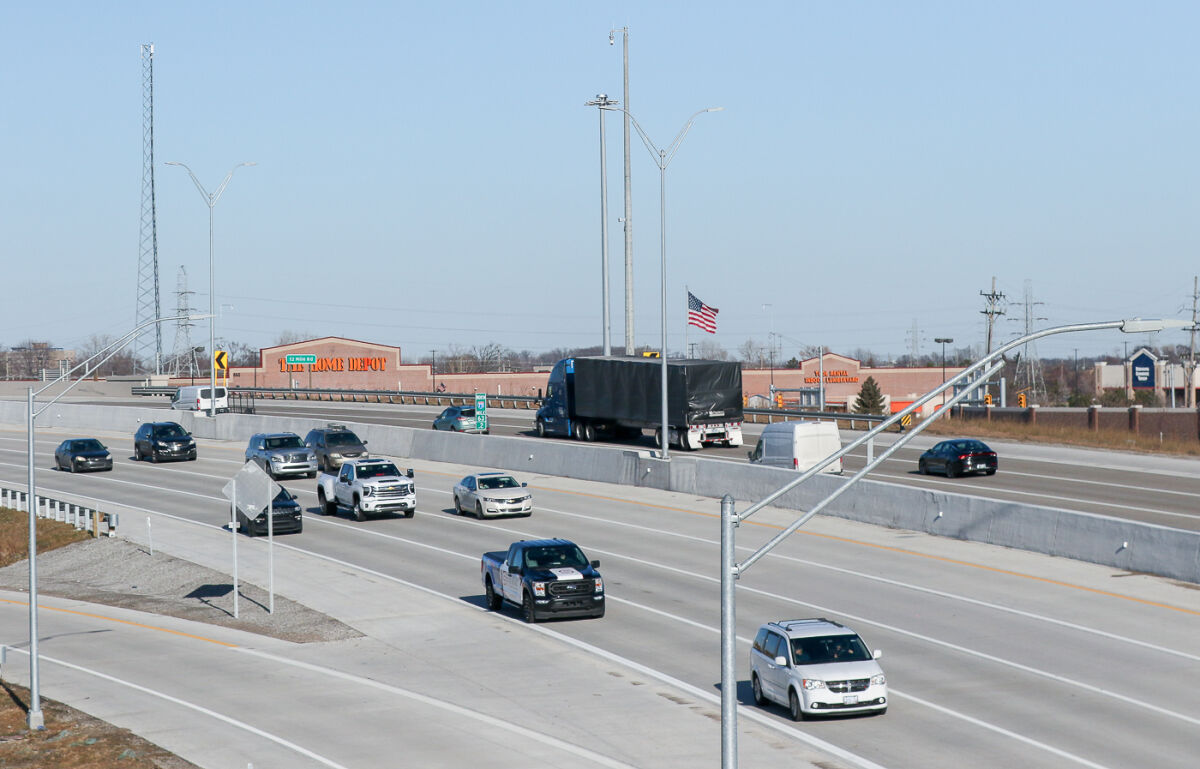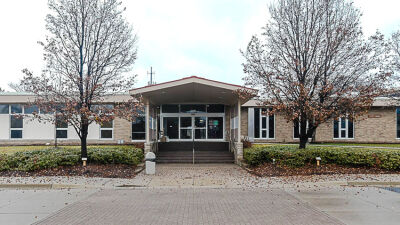MADISON HEIGHTS — The Modernize I-75 project is coming to a close, with finishing touches in 2024. State officials say the 18 miles of updated road will benefit commuters across the region.
But in Madison Heights, some are expressing concern about the toll it took on the community.
“I think it’s shortsighted by the state to fund one project, but not fund for the issues it creates,” said Mark Bliss, the mayor pro tem of Madison Heights. “They rework major roads and bridges and shut down traffic, and they planned for that, but they didn’t plan for compensating us on the impact of all that redirected traffic through our city. Money should’ve been set aside for the cities who would be having those detours pushed through them as part of the project. So my ask is simply that those in Lansing keep Madison Heights in mind.”
The Modernize I-75 project included three major phases.
Segment 1, from South Boulevard to Coolidge Highway, started in August 2016 and finished in September 2017, costing about $90.9 million. Segment 2, from Coolidge Highway to 13 Mile Road, followed in October 2018 and wrapped in November 2020, costing about $224 million. Segment 3, from 13 Mile Road to Eight Mile Road, began in August 2019 and wrapped up in fall 2023, costing about $630 million.
Overall, the project rebuilt nearly 18 miles of freeway, replaced 47 bridges, and modernized interchanges at the I-75 business loop, Big Beaver Road, and 14 Mile and 12 Mile roads, along with constructing the 4-mile drainage tunnel between Eight Mile and 12 Mile roads. The goal of the project was to improve traffic safety and efficiency across the region.
Remaining work in 2024 includes decommissioning pump stations along the corridor that are now obsolete with the construction of the drainage and storage tunnel.
About 90% of all construction costs were covered by the federal government, while the remaining 10% was covered by the state, using gas tax revenue and a portion of vehicle registration fees.
Rob Morosi, spokesperson for the Michigan Department of Transportation, said in an email that the work went smoothly thanks to a team effort by all involved. He said that it’s fair to say the Modernize I-75 was among the state’s most ambitious road projects in terms of scope and cost.
“The project took a heavily traveled interstate that was originally built in the 1960s and brought it up to modern design standards,” Morosi said. “Safety was the prime objective. Crash statistics prior to construction beginning on Segment 1 revealed roughly 70% of crashes occurred in dry conditions, with the most frequent being rear-end collisions, indicating a true capacity issue. Hence the construction of an additional lane in each direction.”
He added that the extra lane should also improve travel time reliability, although it will take time for the state to gather and analyze traffic and crash data for a true before/after comparison.
“However, early data is showing improvement in both areas,” Morosi said. “MDOT appreciates everyone’s patience during the construction of this corridor.”
Bliss said that he understands the regional benefits of the project, but he worries the state will overlook the sacrifice made by Madison Heights taxpayers. He said that he wants the City Council to authorize a letter to the state requesting compensation.
“The I-75 expansion was a years-long project costing hundreds of millions of dollars, and we’re one of the smaller communities that were part of it — we just happen to be heavily impacted with multiple I-75 exits, closures and detours over the course of that time. I think because of our size, it impacted us even more,” Bliss said. “We’re under eight square miles in size as a city, so if people are detouring through here, there are only a few ways they can go. Our residents were feeling the pain when it took them 20 minutes to drive one mile on John R.
“And then there’s the effect we’ll feel later, because all of the heavy trucks and traffic put extra wear and tear on our roads — not only our main roads, but our subdivisions as people cut through,” he said. “Our road replacement schedule is baked in, budgeted on how long we believe a road will be in good condition before it deteriorates. But all that additional traffic will inevitably have it last a shorter amount of time. So my request to our representatives in Lansing is to invest in our local roads.”
Roslyn Grafstein, the mayor of Madison Heights, said she lives at Campbell and 12 Mile roads, and had to plan more time to get anywhere because of the closures and traffic backup.
“But it was nothing like what the residents closer to I-75 had to deal with,” she said in an email. “Because there were so many road closures in the area, trucks and others would go speeding down side streets, ignoring stop signs and having no regard for the families that live there. Not only was this a safety issue, but with more than expected traffic, it really took a toll on our roads, especially the large trucks that were somehow being diverted to our side streets.”
Sean Fleming, a member of the Madison Heights City Council, said the burden to the city should be factored into future grant applications for aid.
“We will need to tell those entities about the conditions that occurred when our roads became the main route for people detouring off I-75,” Fleming said. “We will need to remind them that the reason we need the money is because we took heavy traffic, including trucks for construction.”
David Soltis, another member of the council, said he agrees with Bliss that the city deserves compensation from the state.
“I’m shocked the state didn’t think of it as part of the endgame here,” Soltis said.
 Publication select ▼
Publication select ▼



























